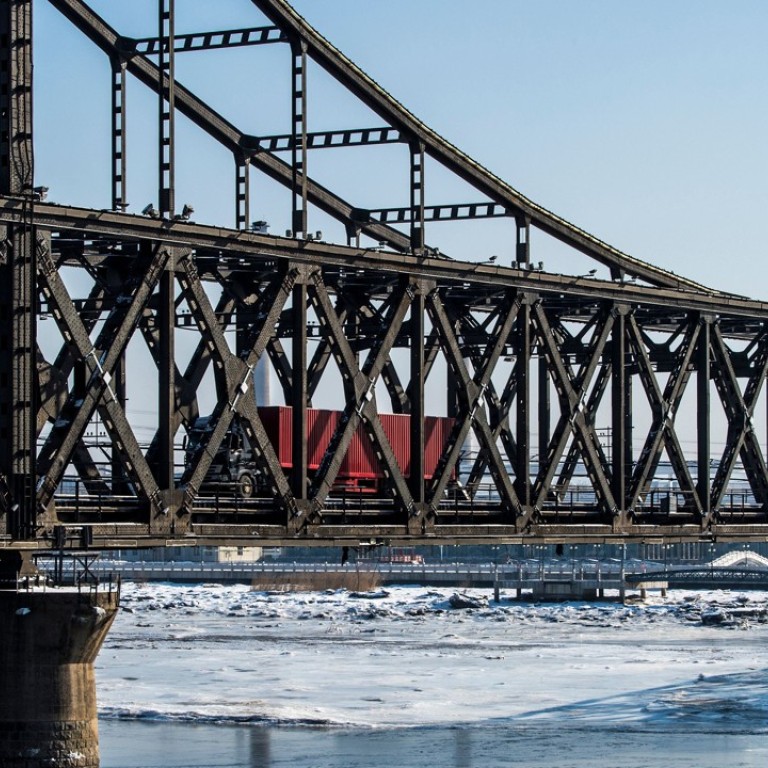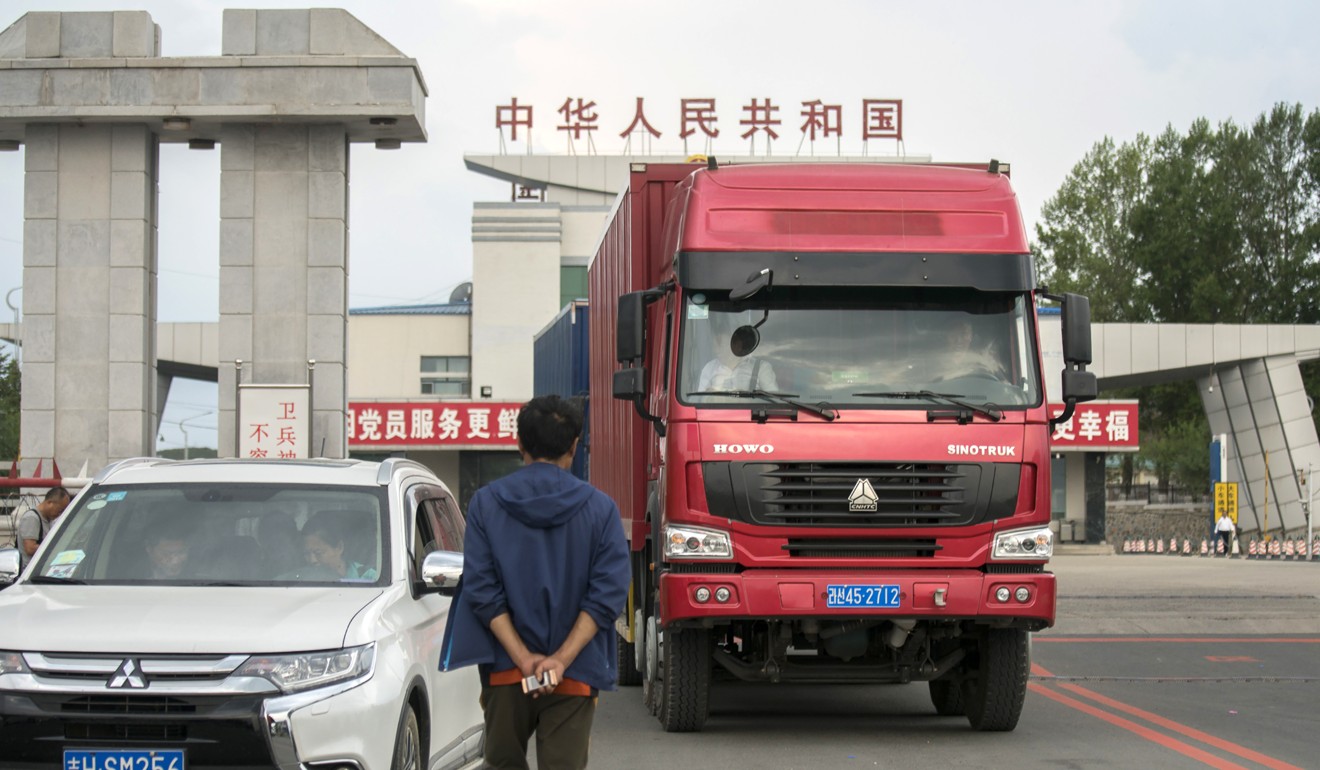
China-North Korea trade falls to near four-year low in January as sanctions bite
Trade between China and North Korea totalled US$215.97 million in January, down 52 per cent from the year-earlier period, Chinese customs data shows
China’s January trade with North Korea fell to the lowest level since at least June 2014, the latest sign that China has kept up pressure on its isolated neighbour in line with United Nations trade sanctions.
China remains North Korea’s largest trading partner and sole major ally, although overall trade has fallen in recent months as the sanctions take effect.
Trade between China and North Korea totalled US$215.97 million in January, down 52 per cent from the year-earlier period and 31 per cent month on month, final trade numbers from the General Administration of Customs showed on Friday.
China’s exports to North Korea totalled US$168.88 million in January compared with US$257.73 million in December, while imports from North Korea were US$47.09 million versus US$54.68 million in December.
Data due to be released by China on Saturday will provide further detail on imports and exports of specific products to and from North Korea, shedding more light on which shipments were affected.
Beijing imported no iron ore, coal or lead from North Korea and exported no oil products except for a tiny amount of jet fuel in December, the third full month of the latest United Nations trade sanctions.
Lu Chao, a Korea expert at the Liaoning Academy of Social Sciences, said trade with China would continue to decline due to bans on exports of commodities as well as textile products and seafood, which used to be major income sources for the isolated country.
“Without these exports, North Korea’s purchasing power is going down and that trend is expected to continue,” Lu said.
Beijing has taken a tough stance on North Korea in recent months in the wake of a series of missile and nuclear tests Pyongyang said had built up its ballistic missile nuclear capability.
The United States has led an international campaign to tighten sanctions on North Korea to force it to give up development of nuclear weapons and missiles capable of hitting the United States.

The Trump administration planned to announce on Friday what was being billed as the largest package of sanctions yet against North Korea to increase pressure on Pyongyang for its nuclear and ballistic missile tests, a senior administration official said.
Meanwhile there are concerns over whether China has violated UN sanctions against North Korea. On Wednesday, the Japanese foreign ministry reported a suspected sanctions violation by Pyongyang after spotting an apparent cargo transfer between a ship marked with Chinese characters and a North Korean vessel. Beijing said it was highly concerned about the report and has launched an investigation.
Lu said that since Pyongyang was now suffering from a severe oil shortage because of the sanctions, the regime was likely to be trying to find ways to import oil.
“But oil smuggling could involve people from any country, and since there will always be someone willing to take the high risk, we could see this happen again in the future,” Lu said. “But I think smuggling from China could be limited given the strict measures taken by the Chinese government.”
Tensions on the Korean peninsula have eased in recent weeks as the two Koreas put on a show of unity, forming a united team to participate in the Winter Olympics, which wraps up on Sunday.
In what was seen as a friendly gesture by the outside world, North Korean leader Kim Jong-un sent a delegation, led by his sister Kim Yo-jong, to South Korea to attend the opening ceremony, and according to a letter she delivered, Kim Jong-un also invited South Korean President Moon Jae-in to visit Pyongyang at the “earliest date possible”.
Additional reporting by Reuters

